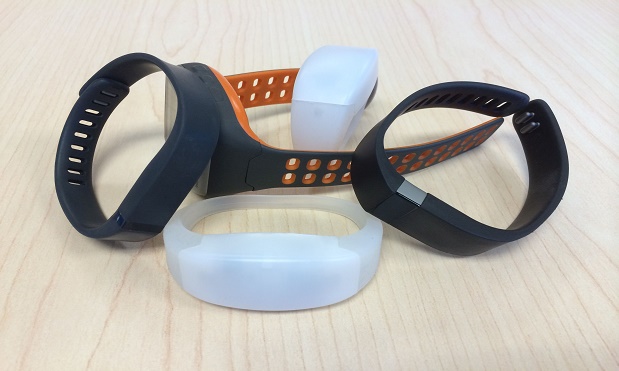 Employers are using wearable technology to monitor their employees to promote wellbeing and boost productivity
Employers are using wearable technology to monitor their employees to promote wellbeing and boost productivity Would you be happy to let an employer track your every move?
Wearable tech is becoming every prevalent in the UK, and is moving to employers and employee wellbeing. In February the NHS had a study of 15 staff members of St Mary’s Hospital, in which they wore a heart monitor for a week, in order to analyse how they were performing at work.
One staff member told the Telegraph that they had felt pressure to become a ‘model employee’ during the study, as they had to note down their daily lives such as exercise and lifestyle in a diary.
“We had to write about when we had alcohol, what time we had breakfast, when we had dinner, what time we got to work.
“I had a colleague who did not want to go for a walk and go out and have lunch, because you have this feeling of guilt – I’m taking the time out to go for a walk around Paddington, because I’m not busy enough.
“You had to write when you went to the gym, and for how long – it feels quite private information.”
A movement is growing from employers to equip employees with wearable tech, to make them fitter, happier and more productive. Whilst fairly new to the UK, the wellness movement is in the US as companies track every aspect of their employees’ lives.
Attention Recruiters
See Live Jobs on SplitFee.org – Don’t Miss Out
It’s FREE if you Join Now!
Whilst employers insist that it’s all benevolent, they are critics who are concerned about the tracking, including scientist Andre Spicer who told the Telegraph:
“Many of the health interventions end up making people feel more anxious and guilty – people start to think ‘well I’m productive in my job, and I’m a good employee, but am I less employable because I’m a bit overweight?’”
Spicer believes that the extra scrutiny can cause depressive episodes in those with histories of depression, and only have short term benefits.
The technology is more established in Scandinavia and America, and schemes include being given cash to go to the gym – with the HR department looking at how long and the intensity of their workout. Others have sent overweight employees to fat camp, and one business believes in 24-hour employees, where the ask employees to be healthier both in and out or work and use measures to help.
Other uses of wearables include being used by a London hedge fund to track their traders and find out whether poor sleep patterns and alcohol intake correlated with risk-taking behaviour, and a supermarket using them to direct employees around their warehouses.
“It’s a blurring of boundaries between the public life, or the workplace, and the home life”, says Spicer. “Do you want your employer knowing how many hours you sleep at night, or how much you ate in the evening? It’s a real invasion of people’s privacy.”
In the UK employers aren’t allowed to see the data collected by a piece of wearable tech without the express permission of the wearer –but it’s possible even voluntary programmes could lead to social pressure on employees who aren’t comfortable with using the technology.
“It might be voluntary, but if you don’t want it, people will ask ‘why don’t they want it? What are they hiding?’ There is potential for discrimination against people who decide not to have this.”
There has been an explosion of interest in fitness and wellness across the UK, with top companies fighting to outdo each other with gym membership, health-obsessed canteens, mindfulness sessions and cycle-to-work incentives.
Experts and users alike are fast identifying brand new problems – and many staff may need more reassurance before letting their employer track their every beer, bedtime and morning gym session.







